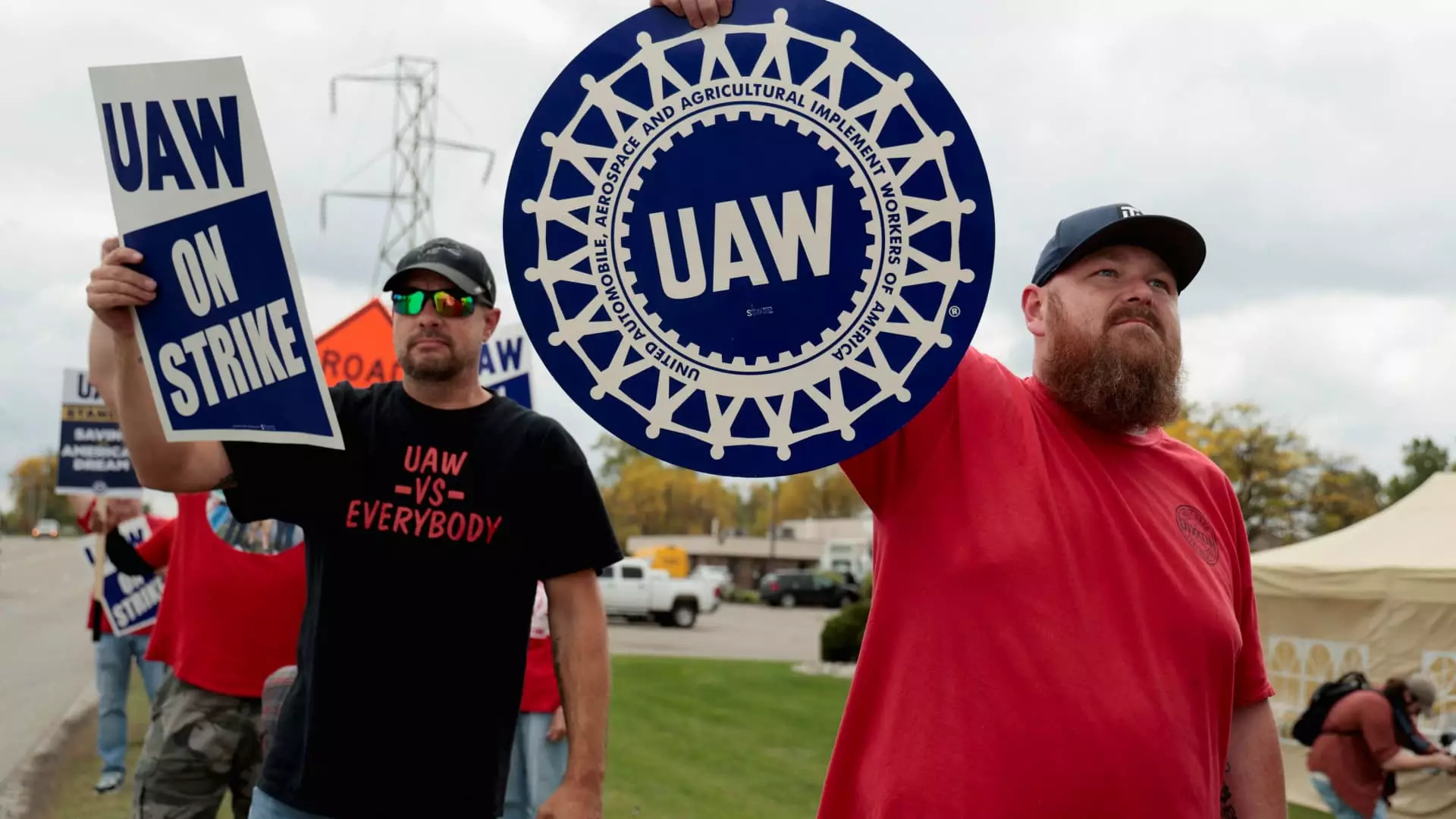Republican governors from six states have come together to express their concerns regarding the United Auto Workers’ (UAW) efforts to organize automotive factories in the South. The governors of Alabama, Georgia, Mississippi, South Carolina, Tennessee, and Texas have signed a joint statement warning that the union’s push for unionization could potentially lead to layoffs and decreased future investments in the region. This criticism comes as Volkswagen workers in Chattanooga, Tennessee, prepare to vote on whether to join the UAW, as part of the union’s broader campaign to organize workers across 13 automakers in the southern states and beyond.
The elected state leaders, including Tennessee Governor Bill Lee, argue that while the UAW may have negotiated lucrative contracts with major automakers like General Motors, Ford Motor, and Stellantis in the past year, such agreements only provide short-term benefits. They claim that unionization could jeopardize jobs in the states, pointing to recent announcements of layoffs by UAW-affiliated automakers as evidence. In response to these concerns, the UAW has not yet issued a statement, as they are also in the process of organizing a vote among Mercedes-Benz workers in Alabama.
Impact on Automotive Industry
Since finalizing contracts with the Detroit automakers, there have been reports of buyout offers and layoffs among both salaried and hourly workers. Stellantis, born out of the merger between Fiat Chrysler and PSA Groupe in January 2021, has been at the forefront of cost-cutting measures. These include the elimination of over 1,000 supplemental workers this year, as part of an effort to streamline manufacturing operations amid challenging market conditions. Shift reductions at specific Jeep plants have also been implemented, citing complexity in agreements and other factors as reasons for the cuts. Similarly, Ford and GM have offered voluntary buyouts and announced layoffs, with GM’s layoffs primarily tied to factory changes like the discontinuation of vehicle production at certain plants.
The UAW’s organizing drive in the South has sparked a series of responses from automakers facing economic uncertainty and shifting market trends. In an effort to invest in electric vehicles and position themselves for a potential downturn, companies like Stellantis have prioritized operational efficiency and cost-saving measures. While some workers have been laid off, others have been transferred to different facilities to mitigate the impact of restructuring. The political backlash from Republican governors underscores the broader tensions between labor unions, corporations, and government entities seeking to navigate complex economic realities in the automotive industry.
As the UAW continues its campaign to unionize workers in the South, the pushback from Republican governors reflects deep-seated concerns about the potential consequences for jobs and investments in the region. The ongoing dialogue between labor groups, automakers, and political leaders underscores the complex dynamics at play within the automotive industry. Ultimately, the outcome of these efforts will have far-reaching implications for the future of manufacturing, labor relations, and economic development in the southern states and beyond.


Leave a Reply